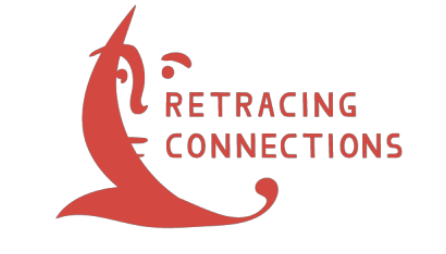
Workshop. Religious Narrative in Ancient and Medieval Literary Cultures
Workshop, 5-6 May 2022, organised by Uffe Holmsgaard Eriksen and Klazina Staat. The workshop will take place in the CML common room at SDU and online via Teams
As an effect of the recent call for a ‘diachronic’ approach in narratology, scholars have highlighted the problems involved in the application of modern narrative theory and methodological tools in the study of ancient and medieval texts. In this workshop, we will explore to what extent it is possible and useful to distinguish a category of ‘religious narrative’ in ancient and medieval literary cultures and discuss the challenges inherent to the use of modern theories and methods for premodern texts. A focus on ‘religious’ narratives may help to elucidate the problems involved in doing comparative literature with modern theories and methods that claim to be ahistorical or universalistic.
Speakers include Laura Feldt (main speaker), Markus Altena Davidsen (main speaker), Andreas Abele, Kasper Bro Larsen, Caterina Fossi, Tamara Holkenov, Aldo Tagliabue, Julie Van Pelt, Uffe Holmsgaard Eriksen (organizer) and Klazina Staat (organizer).
For more information and registration, as well as information about preparatory reading materials, contact the organizers:
Uffe Holmsgaard Eriksen, University of Southern Denmark (uhe@sdu.dk)
Klazina Staat, University of Southern Denmark and VU University Amsterdam (klst@sdu.dk)
Programme
Thursday 5 May
| Times in CET | Sessions | Suggestionsof primary texts, theories, readings, research topics |
| 10.00-10.45 | Introductory lecture, ‘The Narrative Arts of Marvels and Metamorphoses or ‘What is “Religious Narrative”?’, Laura Feldt (SDU) (online) | Readings from the special issue of Religions (46.6) on religious narrative |
| 10.45-11.00 | Coffee | |
| 11.00-12.30 | Kasper Bro Larsen (Aarhus), ‘Open Endings: Narrative Closure in New Testament Gospels and Greco-RomanBiographies’ Julie Van Pelt (Gent), ‘Translating Religious Narrative: the Paradox of Impossible Necessity’ |
Handout “Open Endings – SDU 2022” Translatability of religious texts (Assmann) |
| 12.30-13.30 | Lunch and walk | |
| 13.30-15.00 | Aldo Tagliabue (Notre Dame & Giessen), ‘Enactive immersion and Verticality as Key Responses to Visions from Religious Narratives’ Klazina Staat (SDU and VU University Amsterdam), ‘Kataskopia as a device of religious narrative?’ |
Passio Perpetuae et Felicitatis Cognitive narratology, experientiality, perception (readings from Kukkonen, Caracciolo, Meier) Latin and Greek narrative Theory of space and vision, view from above, odoporic vision (readings from De Certeau e.a.) |
| 15.00-15.30 | Coffee | |
| 15.30-16.45 | Public lecture by Markus Altena Davidsen, ‘The Religious Affordance of Tolkien’s Literary Mythology’ (Davidsen – Tolkien Spirituality) | |
| 18:30 | Conference dinner (only for speakers) |
Friday 6 May
| 10.30-11.00 | Coffee | |
| 11.00-12.30 | Caterina Fossi (University of Amsterdam), ‘Plato's Eschatological Myths as Expressions of a Split Ontology’ Uffe Holmsgaard Eriksen (SDU), ‘Entering storyworlds – metalepses in religious narratives’ |
Plato, Gorgias Metalepsis, possible worlds theory, split ontology (Ryan, De Jong, Kennedy) Metalepsis, apostrophe, fictionality, unnatural narratology (von Contzen) |
| 12.30-13.30 | Lunch and walk | |
| 13.30-15.00 | Tamara Holkenov (SDU), ‘Who is the protagonist in religious Patriarch- Parables?’ Andreas Abele (Tübingen), ‘Saints as Mobile Hero-Agents. Jurij Lotman and Hagiography’ (online) |
Rabbinic literature Narrative protagonists (Armin Geertz) and cognitive/affective narratology (Hogan e.a.) Late antique hagiography Jurij Lotmans notion of ‘sujet’ |
| 15.00-15.30 | Coffee and round-table, ‘Religious narrative, real or a fantasy?’ | |
| 16.30- | Visit of Odense Domkirke (for all interested) |
The workshop is supported by the research projects Retracing Connections: Byzantine Storyworlds in Greek, Arabic, Georgian, and Old Slavonic (c. 950 – c. 1100), funded by Riksbankens Jubileumsfond in Sweden, Total Devotion – Passions and Plots in Radical Religion in the Ancient World, funded by the Independent Research Fund Denmark, and the Research Programme Authority, Materiality and Media at SDU, Odense.

